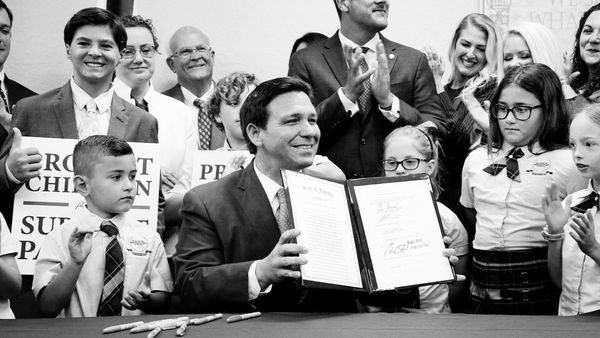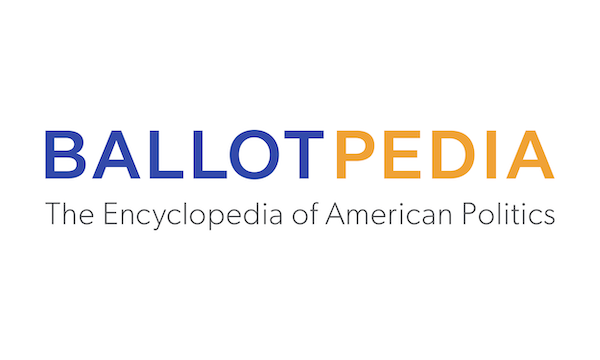Gov. Ron DeSantis’ massive political clout has been on full display.
Armed with the leverage of a skyrocketing national profile, he convinced Florida lawmakers to pass a congressional map drawn by his office — containing changes they previously opposed — and back an effort to kill The Walt Disney Co.’s special district, after the governor publicly lambasted the company.
That national profile comes with a dollar figure of more than $105 million.
That’s how much DeSantis raised for his reelection as of the end of March, campaign finance records show. It represents the combined contributions to both his candidate account and his political committee and includes non-monetary contributions such as air travel.
The amount raised is a record for Florida politics, particularly for a candidate like DeSantis who is not personally wealthy and able to self-fund.
DeSantis’ fight with Disney has drawn national attention in part because it’s unusual for Florida politicians to defy a company that’s long enjoyed VIP treatment from lawmakers as one of the state’s largest employers and a generous campaign donor.
Before it announced it would freeze its Florida political contributions because of its opposition to the the Parental Rights in Education law, or what detractors have called the “don’t say gay” bill, Disney wrote DeSantis a $50,000 check last year for his reelection.
But for DeSantis, going against Disney has paid off.
On one day alone last month, when his campaign sent out its first fundraising email chastising Disney, his candidate account received nearly 950 small donations of $100 or less, totaling around $30,000. Five days later, when his campaign sent a second Disney-bashing donation request, people opened their wallets more than 500 times to give in small increments, adding up to another roughly $18,000.
Campaign finance records show many of these donors live outside Florida, with addresses from all corners of the country including Ohio, Massachusetts, Washington, California, Texas, New York, Colorado, Louisiana, North Carolina and more.
Nick Iarossi, a Tallahassee lobbyist and DeSantis fundraiser, credited DeSantis’ aggressive reopening policies during the pandemic for turning him into a national foil to “lockdown” states and President Joe Biden’s administration.
“Whether it’s $10 or larger, people want to be part of the campaign,” he said. “A lot of times governors are really relatively unknown outside their state ... his name ID nationally is very high.”
To put DeSantis’ numbers in perspective: When Adam Putnam ran for governor in 2018, he dazzled politicos as a prolific fundraiser when he had raised about $30 million by June.
Just four years later, the out-funded and outgunned former congressman he ran against in the Republican primary is operating at a level more synonymous with national politicians than an incumbent state official who is favored to keep his job, based on recent polling.
One of the Democrats running to replace him, Agriculture Commissioner Nikki Fried, said that’s not a coincidence.
“He is raising (those) dollars outside, mostly, from the state of Florida for his run for president in 2024 and using the people of our state in order to get there,” she said at a recent news conference in Tampa. DeSantis wouldn’t be allowed to transfer money directly from his state campaign committee into accounts used for a federal race under campaign finance law.
With their campaign contributions combined, the three prominent Democrats running for governor raised about $16 million by the end of March — less than a fifth of DeSantis’ total. Fried raised about $6.4 million, while U.S. Rep. Charlie Crist generated nearly $8.3 million and state Sen. Annette Taddeo raised about $1.3 million.
When asked about DeSantis’ fundraising, Taddeo pointed to 2018 as an example of why she shouldn’t be counted out.
“You should ask Gov. Putnam or Gov. Gwen Graham about how they felt at this point with the insurmountable amount of money,” Taddeo quipped. Former U.S. Rep. Gwen Graham was also considered the early frontrunner for the Democratic nomination for governor in 2018 before Andrew Gillum beat her in the primary.
It’s true that money isn’t always the predictor of Florida’s elections. But as a state with a reputation for being expensive because of its multiple large media markets for TV advertising, it’s a necessary tool for candidates to spread their message and their biographies.
Making things more difficult for Democrats is the fact that DeSantis is already featured in headlines daily as he traverses the state, holding wall-to-wall news conferences and generating a constant firehose of news that often makes a national splash.
Since 2018, DeSantis has relied on a megadonor class similar to those who supported President Donald Trump, rather than the traditional heavyweight Florida special interests.
So far, DeSantis’ largest donors include some familiar out-of-state billionaires like hedge fund manager Kenneth C. Griffin and shipping magnate Richard Uihlein, both from Illinois, plus Home Depot co-founder Bernard Marcus of Atlanta. Prominent Florida businessmen have also chipped in large sums, including WeatherTech CEO David MacNeil, a Fort Lauderdale resident, and Daytona Beach entrepreneur and philanthropist L. Gale Lemerand.
Sean Shaw, a former Democratic lawmaker from Tampa and previous candidate for attorney general, said fundraising will get easier for Democrats after their August primary decides who will be going against DeSantis. He’s endorsed Crist in the Democratic primary and plans to act as a surrogate for that campaign.
“We always hear (Democratic) donors are leaving Florida but it’s really hard to do that because Florida is so integral,” Shaw said. “Florida is basically ground zero for Republican politics right now ... so (donors) are going to have to deal with Florida because if DeSantis wins, he’s probably going to run for president.”
He pointed to Florida’s history of razor-thin election margins, including DeSantis’ victory in 2018, as a reason for national donors to stay engaged.
“If you want to beat him,” Shaw said, “it’s probably cheaper to deal with him right now.”
____
(Times data editor Langston Taylor and Miami Herald staff writer Bianca Padró Ocasio contributed to this report.)
____










